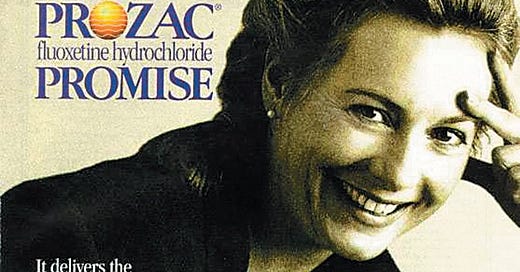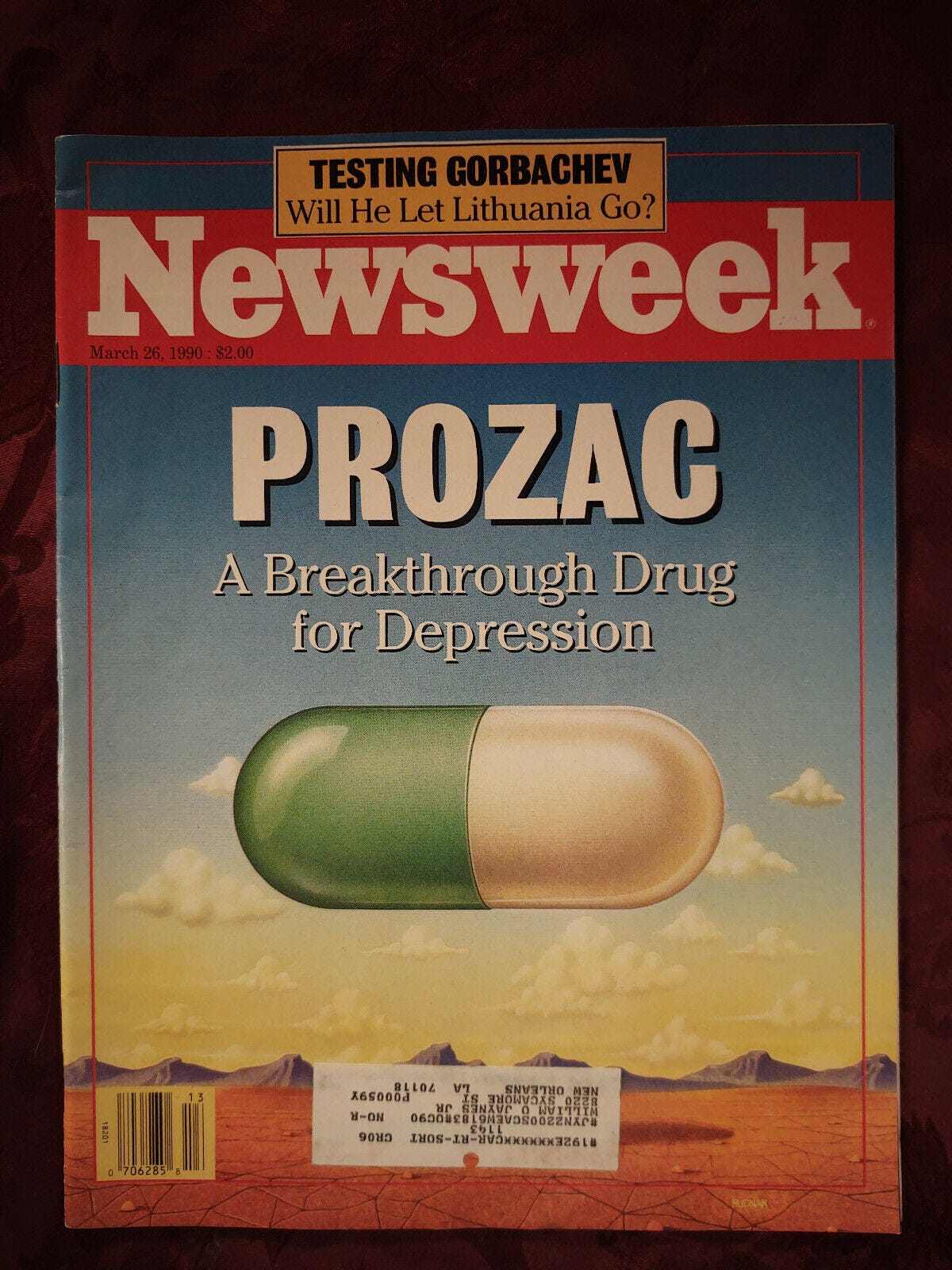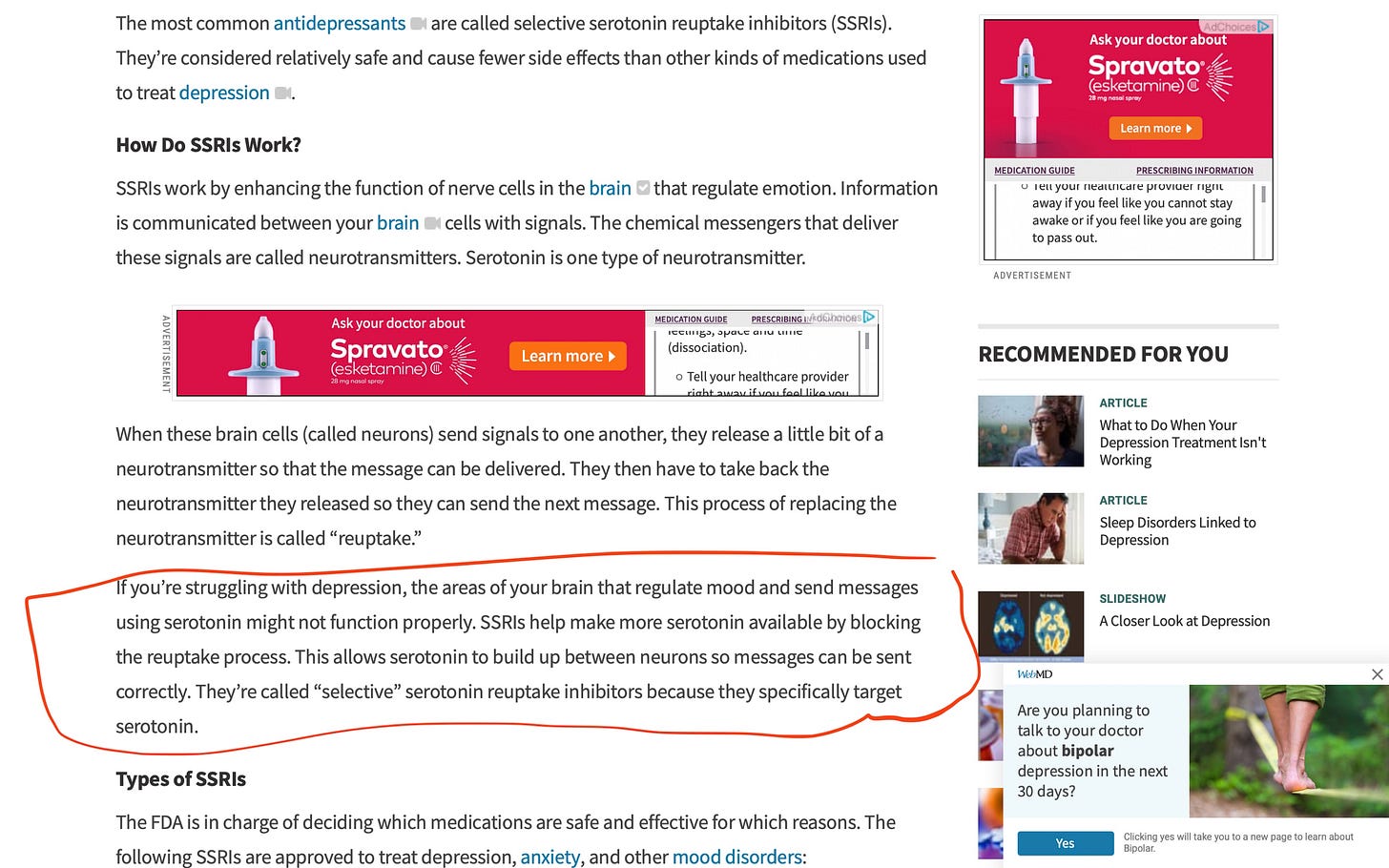The "Chemical Imbalance" Lies Are A Crime Against Humanity
The most effective marketing campaign in history.
As someone who grew up in the 1980s and 1990s, I witnessed the rise of the chemical imbalance theory of mental illness and its infiltration into the American lexicon. While people had always experienced struggles related to life events, psychiatrists were not in high demand, and primary care physicians didn't push the latest psychiatric drug whenever we presented with signs of stress.
Sadness and anxiety were considered as normal reactions to life events rather than symptoms of a brain illness, and there was greater acceptance and tolerance for the inevitable struggles of life. Although some people required more intensive and prolonged assistance, help was available outside the therapist's office, and the idea of taking a mood or mind-altering drug was met with a healthy dose of skepticism at best.
Schools could respond without fear of litigation or a referral to a "mental health expert." Parents normalized reactions and didn't consider their kids to be suffering from a mental illness when sad, stressed or anxious about normal developmental challenges. People were provided the necessary time to learn from their emotions, and the majority of struggles were seen as episodic, often resolving once life circumstances changed or the person adapted to the conditions that initially caused the struggle.
From a science perspective this is referred to as natural recovery. Yes, most people would naturally recover in time. What does this mean? You would learn, grow, adapt and transform through the experience. Depression, stress, anxiety, loss, struggle, failures, adversity were part of the growth process. Then everything changed.
Manufacturing an Epidemic
In December 1987, the FDA approved fluoxetine, which was launched as Prozac® in January 1988. The approval of Prozac® promoted the idea that depression was caused by a deficiency in serotonin or another brain chemical imbalance, which became the dominant cultural narrative and the rationale for selective serotonin reuptake inhibitors (SSRIs). SSRIs inhibit serotonin transporter proteins, which are responsible for transporting serotonin from the synaptic cleft back into the presynaptic neuron, thus increasing the availability and activity of synaptic serotonin.
The pharmaceutical industry promoted the idea that depression was the result of an "imbalance" or deficiency of brain serotonin, and that SSRIs reversed this underlying abnormality. Suddenly, the idea that depression could be treated like any other medical condition was mass marketed.
Around the time that Prozac was approved, the Prescription Drug Marketing Act of 1987 (PDMA) was signed into law on April 22, 1988. Prozac was on the cover of major magazines, commercials, and embedded marketing lines in television and movies promoted the idea of a chemical imbalance. Academics became paid spokespeople for psychiatric drugs and authored medical textbooks, perpetuating the myth of the chemical imbalance theory of mental illness.
There Never was a “Chemical Imbalance”
Are you ready to have your mind blown? The chemical imbalance theory of mental illness is a complete and utter fabrication, a made-up theory that has been thoroughly debunked. Yet, the pharmaceutical industry continues to push psychiatric drugs targeting brain chemicals, and doctors continue to prescribe them to unsuspecting patients.
The systematic review of the evidence published in 2022 was a shock to many as it highlighted the decades of evidence that debunked this theory, but even that was met with vitriol, hit pieces, and attempts to discredit the authors. Yes, if you challenge the drug narrative you can actually be labeled as a “right wing extremist”.
In today's media-saturated world, commercials often present an idealized or simplified portrayal of human emotions. They frequently depict individuals overcoming their emotional struggles with ease and happiness, thanks to the featured medication. This messaging can create unrealistic expectations about the complexities of human emotions and the potential quick fixes provided by antidepressant medications.
Our perception of human emotions has been significantly shaped by the influence of media marketing and the power of commercials. Advertisements, such as this Zoloft commercial, have played a substantial role in altering the way we understand and interpret our emotional experiences.
Why does this harmful myth continue to this day? Maybe it's because websites like webmd.com still perpetuate this false narrative. It’s believed more than 80% of the American public continues to believe that depression & anxiety and “mental illness” are the result of a brain chemical imblance. Don't be fooled by the lies any longer.
Harms of Identifying with a Chemical Imbalance
The pervasive belief that moods are a product of some genetic abnormality or chemical imbalance has radically altered the way we view ourselves. As people internalized the notion that their emotions were beyond their control and indicative of a psychiatric disorder that required treatment, fear and mistrust of their own feelings took root.
The result has been an intensification of emotional reactions and a harmful disconnection from the context in which those emotions arise. Instead of utilizing these experiences to identify and solve problems, people are encouraged to numb or suppress their feelings with psychiatric drugs that carry the risk of serious, potentially life-threatening side effects.
The pharmaceutical industry's tactic of promoting a combination of medication and therapy as the "cure" for depression and other mental health struggles was a shrewd marketing strategy to boost drug sales. Despite this, many in the mental health field still believe that portraying mental illness as a medical condition can reduce self-blame and stigma, leading to better outcomes. However, research has shown that attributing depression to a chemical imbalance actually increases negative beliefs about oneself, fosters a pessimistic outlook, and leads to a preference for medication over psychotherapy. Multiple studies have highlighted the harmful and potentially iatrogenic effects of perpetuating the myth of a chemical imbalance. Continuing to do so is not only misguided but borders on criminal negligence.
Now, decades after their initial introduction, the use of SSRI medications has become increasingly prevalent, leading to a rise in the number of prescriptions being written. This raises important concerns: Are individuals being adequately informed about what they should expect when they begin taking these drugs? Are healthcare providers well-versed in the latest efficacy research and potential risks associated with their use? Regrettably, it is my position that the attainment of informed consent in these instances is far from commonplace.
In next week's newsletter, I will delve into this issue and present a detailed exploration of what informed consent SHOULD truly entail when it comes to prescribing antidepressant medications. We can’t consent unless we are informed.!








Thank you for this. Two questions: how exactly did the PDMA play a role in all of this and also, is one to assume that the findings re.: serotonin are the same for norepinephrine?
Britain fell for these lies too, although I believe that we fell less hard that America. Many were openly sceptical, including doctors of the National Health Service. Nevertheless our consumption has gradually increased, due in part to our politicians selling off the NHS to US Corporations. Also because of changes to local authority admin systems that increasingly prevent family doctors from speaking out. Meanwhile public awareness and protest is growing. The government's reaction is "Lock 'em up"